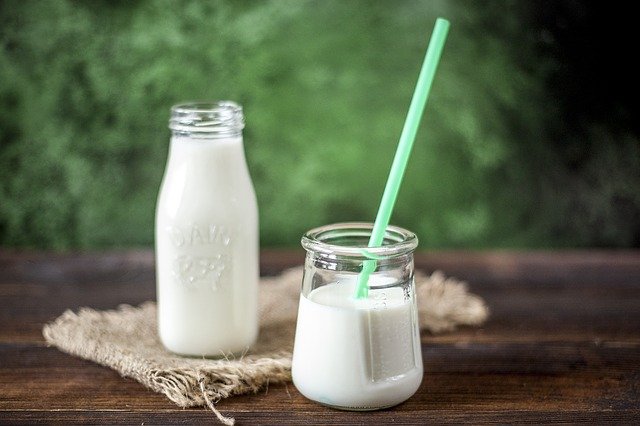
There seems to be a lot of conflicting information out there about whether or not freezing milk will change the taste.
Some say that freezing milk does not alter the flavor, while others claim that it makes for a slightly different taste when you thaw and use it.
So, does freezing milk change the taste?
Freezing milk can potentially change its taste and appearance. But in most cases, these changes are minimal. If you have leftover milk, then you need to freeze it immediately. The faster you freeze, the lesser the possible damage.
If you want to make sure that the milk is still safe, open the container. If you find ice crystals on top, know that this means your milk has spoiled. That’s because those ice crystals are caused by bacteria in your now-spoiled dairy product.
To avoid this problem altogether, simply buy smaller quantities of fresh milk at regular intervals so you can keep from opening up any containers until they’re completely frozen solid!
What is the purpose of freezing milk?
Freezing milk is a great way to preserve it and enjoy it later. But you need to do it properly. If you are considering freezing your milk, here are some tips for how to do so properly.
1. Milk can be frozen in the original container that is used when purchased from the store or transferred into another freezer-safe container (like a Ziploc bag).
2. Do not overfill containers with milk as this will cause them to burst open and spill when they solidify.
3. Place containers of milk on their sides in the freezer compartment so that no air pockets form near the top surface of the liquid inside each package. This will allow more space for ice crystals to form while keeping liquids cooler longer during storage.
4. Freeze only what you think you might use within two months.
How does freezing affect milk taste and texture?
Freezing the milk can affect its taste and texture in two ways:
1. The freezing process can cause damage to the fat globules in it, which will change the taste and texture of your milk when consumed from a glass or a bowl.
2. Freezing doesn’t completely lock in freshness because bacteria may be able to survive if you don’t freeze your milk fast enough. So, if you open a container of milk that has been frozen and find ice crystals on top, this means your milk has spoiled.
Does freezing affect the nutritional value?
Freezing doesn’t diminish the nutritional value of milk. It can even help with the staying power of certain vitamins! That’s why it is so important to freeze milk as soon as you get it home from the store.
So, if you plan on freezing your milk, make sure that you do it immediately and don’t open up any containers until they are completely frozen!
For best results, try to freeze smaller quantities of fresh milk at regular intervals instead of buying a lot and opening it all up.
Why does milk taste different after frozen?
The taste of the milk can change after it has been frozen. This is because the freezing process causes certain changes to occur in the milk’s proteins and fat content, which affects its flavor and texture.
The most noticeable difference is that partially frozen or ice-cream-like lumps form when you thaw a carton of milk, while fresh milk flows smoothly from the container.
These lumps may be off-putting for some people, but they do not affect the quality of your drink! In fact, even though these changes are not appealing to many people’s tastes, consuming foods containing fats and protein (such as yogurt) alongside dairy products enhances their flavors by making them creamier.
What does frozen milk taste like?
Frozen milk taste like any other milk that has gone through the freezing process, but it can be a little sour at times.
The taste does not change much from brand to brand, though you may notice slightly better or worse flavor in different products depending on how quickly they freeze.
Is it possible to thaw frozen milk and still use it (if so, how)?
Most freezing methods are designed to keep your milk fresh by freezing it quickly. If you are about to drink the milk or want to make some milkshakes with it, you can thaw the product in a fridge and then use it as normal.
Most freezing methods that have been used also mean that no air enters into contact with the container.
A bit of advice: Once frozen milk begins to thaw even slightly and is left at room temperature for more than two hours, it should be thrown out. Again, this is because bacteria could thrive during this time.
How long does frozen milk last after thawed?
Once frozen milk has been thawed, it should not be kept at room temperature for more than two hours (on average).
If left out longer than this time frame, throw it out! It is spoiled and definitely affects the taste and healthiness of the product inside your fridge.
When freezing milk in your freezer, you want to make sure that it stays fresh as long as possible. To do so, there are a few things to remember:
1. Freeze milk right away and don’t open the containers until they’re frozen solid.
2. Pour from the bottom of the container when serving; this will avoid mixing any water or other liquids with your drink.
3. Freeze smaller quantities of fresh milk at regular intervals instead of freezing a large amount all at once.
4. Make sure that the temperature in your freezer is zero or below and that it maintains this temperature correctly.
5. If freezing plate packs, make sure to wrap each individual pack with plastic wrap first!
6. Keep frozen milk out of direct sunlight and near the back of your refrigerator where temperatures are coldest (not the door).
7. Check on these containers every month.
What is the best container to freeze milk in?
The best container for freezing milk is the one that has a tight-fitting lid, which is not transparent and should come in different sizes.
Milk freezes quicker and better when it is packaged in a smaller container than a larger container because the freezing process starts from the outside of the container toward its center.
When you thaw frozen milk, NEVER remove spill-proof or resealable lids until the product is completely thawed since this could cause bacteria to grow (due to moisture entry).
There are many types of packaging available at stores such as Tetra Pak, juice boxes, and even bottles with screw top caps.
Can you freeze milk in ice cube trays?
Many consumers are unsure of whether or not they may freeze milk in an ice cube tray, but it is possible to do so.
In many cases, it is better to use ice cube trays when freezing small quantities of milk instead of using a container for freezing because you can then easily remove the cubes as needed.
Is it better to store milk in glass or plastic?
When it comes to storing and preserving frozen milk, you want to make sure that the container you use is the correct one for freezing.
While glass containers are considered more airtight than plastic ones, they can also be more difficult to work with when freezing food since they’re usually not designed for this purpose (preserving liquids).
Plastic container lids are often re-sealable which means you can go back and forth between filling the container to freezing it over a few days.
Do I have to refrigerate my opened can of milk?
Most refrigerators these days are designed to refrigerate opened milk containers as well.
But don’t overdo it! You should always refrigerate an opened container for no longer than a week.
If you’re planning on taking your time drinking the product or making a specific recipe soon, then this is perfect! Otherwise, just refrigerate whatever amount you do not want to use now and freeze the rest (if it’s too much).
One area where refrigerating your milk can help preserve its quality even after opening is that refrigeration slows down bacteria growth in general. This helps keep your drink fresh for longer periods of time.
However, once the container has been opened, it will all go downhill from there since air could now enter the container.
Final Thoughts
Milk that has been frozen will have a slightly different taste than fresh, as well as ice crystals in it and more water content when thawed out.
When you freeze milk, some bacteria can survive and produce lactic acid. This is what causes the sour or tangy flavor after being left out for too long while cooking with it or drinking it iced cold.
If you’re going to freeze your raw milk make sure to do so properly by following the tips shared in this post.
If you want to learn more about freezing foods, feel free to visit this page.

